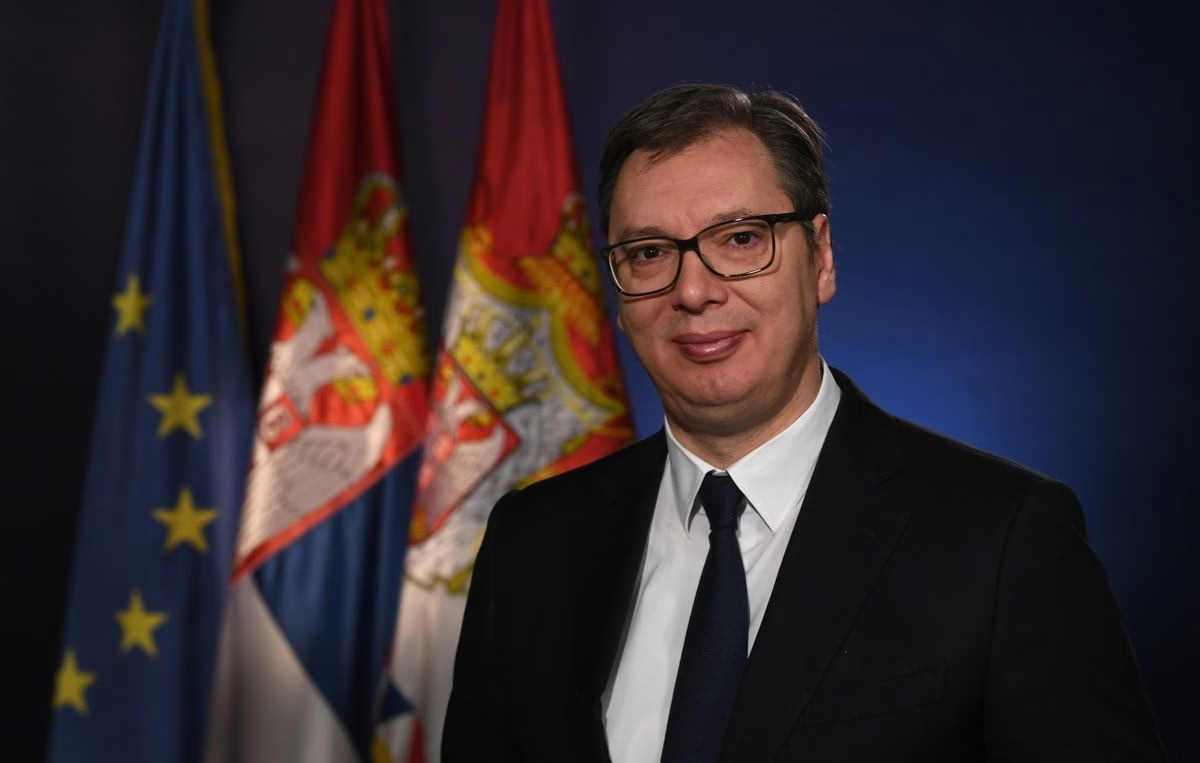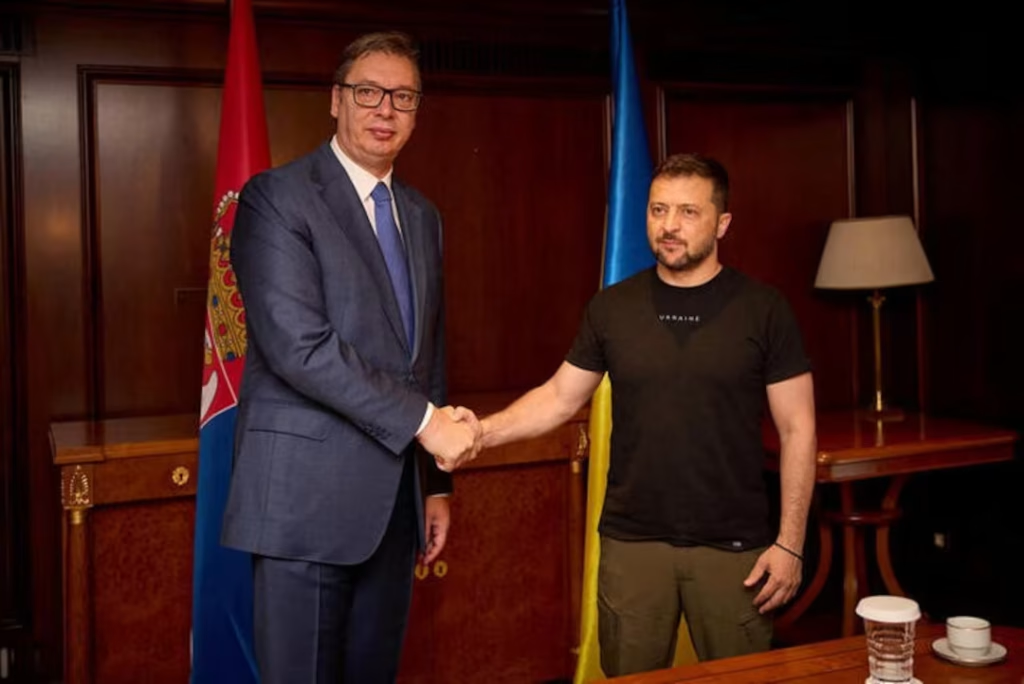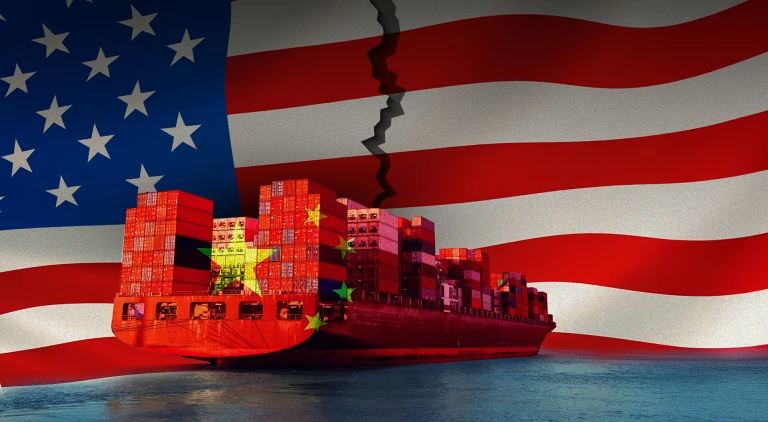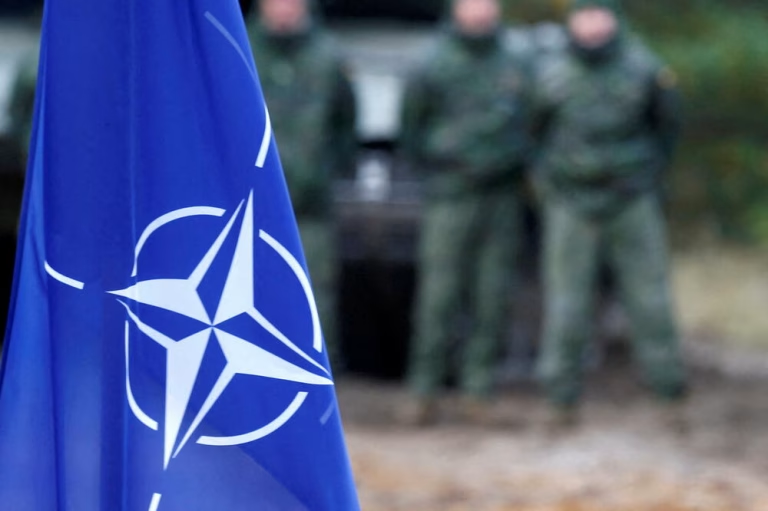
Vučić’s Method
On May 29, Russia’s Foreign Intelligence Service published a statement accusing Serbia of regularly supplying ammunition to the Ukrainian Armed Forces. Incidentally, reports about Serbian firms supplying Ukrainian troops had long been leaking into the press, but the Kremlin had never made such direct statements before.
Vučić, who is used to “sitting on two chairs,” has already received several serious messages from world leaders in just one month. Earlier, the Serbian president was denied entry to a gala dinner at Trump’s residence, and at the parade in Moscow, “Russia’s friend” was seated as far away from Putin as possible.
It is becoming increasingly difficult for Vučić to keep up appearances. Since 90% of Serbia’s population is pro-Russian, any government in the country must take the “Russian factor” into account. When things got really bad, Vučić would pull a joker out of his sleeve: he could call Putin, give a lecture at the Russian House, or announce that the country would once again receive Russian gas at the lowest price in Europe. At the same time, the Serbian president has spent years insisting that official Belgrade “will not deviate from the European path,” that the U.S. remains a strategic partner, and that meetings with Volodymyr Zelensky were held several times a year. Before the Russia-Ukraine war, maintaining a multi-vector policy was easier—outside of armed conflict, a country could make statements and trade with all sides while citing a historically neutral stance. However, the war has made navigating the Scylla and Charybdis of international politics much more complicated. The essence of any war is that it reveals who is who, making it impossible to call black white and vice versa.

In response to the scandal over arms sales to the Ukrainian Armed Forces, Vučić made an outrageous claim: “Where are we supposed to export weapons if we can’t send them to Africa, the EU, or the U.S.? We work for Serbia, and it is our duty to work for Serbia.” Apparently, if you can’t supply countries that have collectively inflicted immense suffering on the Serbian people throughout history—including through “humanitarian bombings”—then the only option left is to supply weapons to the enemies of those whom 90% of Serbs consider brothers, as well as historical and strategic allies (something the president himself regularly declares).
The fact that Moscow has grown tired of Vučić’s evasiveness is further evidenced by the gas contract, which, among other things, served as his trump card—something he could always present to the people of his small country as a major geopolitical victory. In fact, the Serbian president attended the May 9 parade partly to secure an extension of the gas deal. But here’s the catch: the contract was only extended until the end of September, not for three years as had been the case before. This, too, may be a clear signal to official Belgrade—one in a series of messages that are no longer hints but outright statements. It should not be forgotten that the Serbs had planned to nationalize Gazprom’s subsidiary, NIS, which the Americans have been eyeing. A series of scandals has been snowballing into an avalanche of misfortunes, seemingly becoming the inevitable outcome of modern Belgrade’s policies. Add to this the internal instability fueled by protests that have not subsided since December 4. It has become clear that they have taken on a systemic character, serving as yet another major factor of turbulence for the current government.
Are the Russians behind the protests? This is the least popular theory in Serbia, given the government’s own position—it has claimed that Russian intelligence agencies provided assistance (another instance of playing the “Russian card”) in exposing the anatomy of the protests while blaming a number of Western countries for the instability. Could the protests be a tool of blackmail to pressure Vučić into continuing to follow the “European path,” which, among other things, includes supporting Ukraine in the war? Possibly. But the more concessions the Serbian president has made in the past, the more difficult a position he has put himself—and his country—in. Instead of pursuing genuine neutrality and defending its sovereignty in Kosovo and Metohija, official Belgrade has bet on constant appeasement, predatory investment projects in reality, Euro-integration, and attempts to please everyone. Of course, even a neutral stance would not please the world’s powerful, but trading with all sides is not the same as supplying weapons to one side of a bloody conflict—especially when Serbia’s own government proclaims the other side a strategic ally. On par with the U.S.

